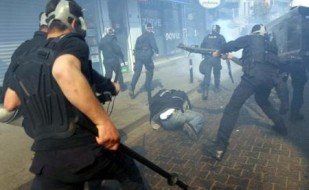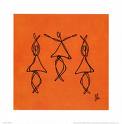Article 301 of the Turkish Penal Code has been a cause for criticism in the European Union’s Progress Report. After its amendment or abolishment has again been deferred by other issues, such as the headscarf debate, it has been criticised by a draft report of the European Parliament.
"Judiciary in Turkey not reliable"
The report, written by EU Turkey rapporteur Dutch Christian Democrat Ria Oomen-Ruijten, has called for a “realisation of the repeated promises” concerning Article 301.
Oomen-Ruijten has criticised the fact that there have been no new reforms concerning the freedom of expression.
Discussing the draft report before the European Parliament’s External Relations Committee, Oomen-Ruijten said there is no judiciary in Turkey that every one can rely on.
“Turkey needs to work on this matter,” said Oomen-Ruijten.
835 trials in 2006
Meanwhile, Minister of Justice Mehmet Ali Sahin replied to the question of Mersin MP Mehmet Sandir from the Nationalist Movement Party (MHP). The Habertürk website quoted him as saying that 1,533 people were put on trial in 835 cases under the article in 2006, twelve of them children. In the first three months of 2007, a total of 744 trials were opened against 1,189 people.
Next 301 hearing on 3 April
On 3 April is the next hearing of journalist Ahmet Sik and security expert Lale Sariibrahimoglu, who are on trial for an interview published in the Nokta magazine. They stand accused of “denigrating the state’s armed forces.”
The prosecution at the Bakirköy 2nd Penal Court in Istanbul is demanding up to two years imprisonment each for Sik and Sariibrahimoglu for the interview with the titles “What does the police-gendarmerie conflict tell us?” and “The military should stay out of domestic security”.
The trial was initiated by a complaint filed by the general command of the gendarmerie, and the initial investigation was carried out under the charge of “alienating the public from military service”, but was later changed to Article 301.
Controversial article
Article 301 states the following:
1. A person who publicly denigrates Turkishness, the Republic or the Grand National Assembly of Turkey, shall be punishable by imprisonment of between six months and three years.
2. A person who publicly denigrates the Government of the Republic of Turkey, the judicial institutions of the State, the military or security organizations shall be punishable by imprisonment of between six months and two years.
3. In cases where denigration of Turkishness is committed by a Turkish citizen in another country the punishment shall be increased by one third.
4. Expressions of thought intended to criticize shall not constitute a crime. (EÖ/GG/AG)
* This article made use of the ntvmsnbc.com website and Wikipedia.













